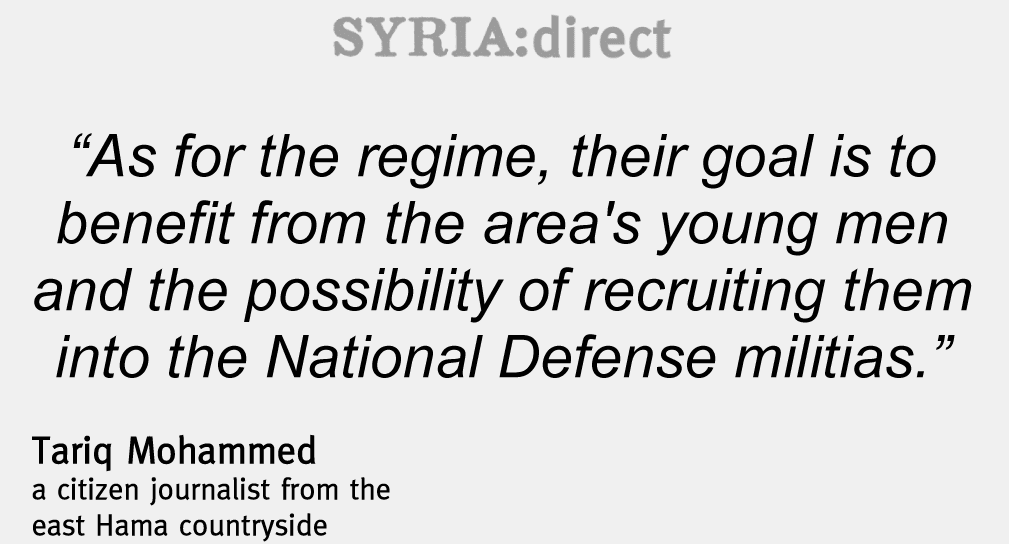East Hama activist: Nusra arrests local leaders for negotiating with regime
Jabhat a-Nusra reportedly arrested a dozen local notables across four […]
22 March 2016
Jabhat a-Nusra reportedly arrested a dozen local notables across four villages in the east Hama countryside on Monday, charging them with promoting reconciliation agreements and holding meetings with regime security forces.
The negotiators wanted to secure residents the right to enter regime-held areas, and allow those expelled from their homes the chance to return, Tariq Mohammed, a citizen journalist from the east Hama countryside, told Syria Direct’s Nisreen a-Nasser.
“Jabhat a-Nusra had their names beforehand, seeing as they stormed specific houses and not all of the houses in the villages.”
Q: How many people has Nusra arrested until now?
The arrest campaign began Monday morning and was over by night. Twelve civilians and village notables were arrested in the villages of Abu Ajwa, al-Shiha, Suruj and Tel Halawa. Those arrested do not belong to a military brigade, and their ages range from 30 to 50. Jabhat a-Nusra had their names beforehand, seeing as they stormed specific houses and not all of the houses in the villages.
Among those arrested was a member of the Hama Provincial Council.
Q: Do you think that the accusations against those arrested are true?
Yes. They were meeting with delegations from the regime in secret, in Hama city, in order to work towards reconciliation agreements. The notables [were trying to] convince residents to accept reconciliation, and present them with monetary incentives. The regime leaked this information and began to say, through its media, that there are villages that want to push out militants, and want a return to safety.
Q: Why do you think they are negotiating with the regime?
In order to further their personal interests, seeing as they are the villages’ notables. They’re negotiating under the pretense of stopping the regime’s bombing of the villages. Likewise, [should the reconciliation succeed] those residents who agree to the reconciliation will be able to enter regime-controlled areas.
There are areas from which the regime forced residents out who are only able to return to their homes after a reconciliation agreement.
As for the regime, their goal is to benefit from the area’s young men and the possibility of recruiting them into the National Defense militias, and subsequently subjugating these areas under their rule.
Q: What will happen to the detainees?
They will be sent to the Sharia Court, and the judge will decide their fate.







